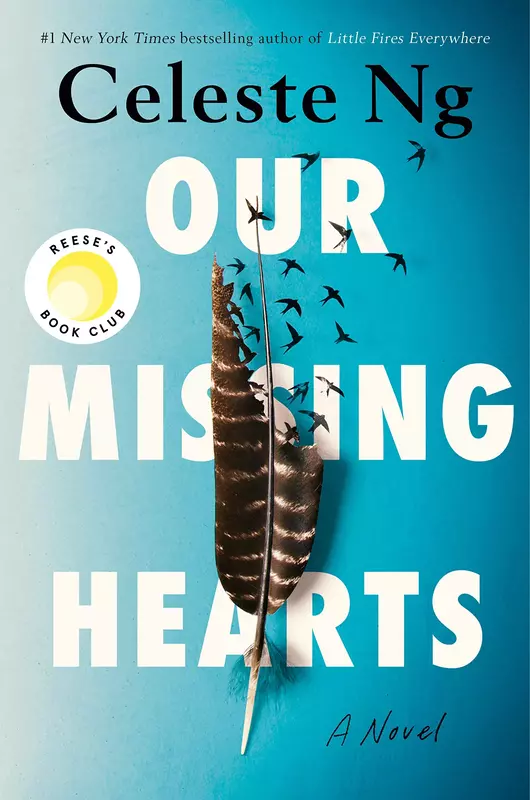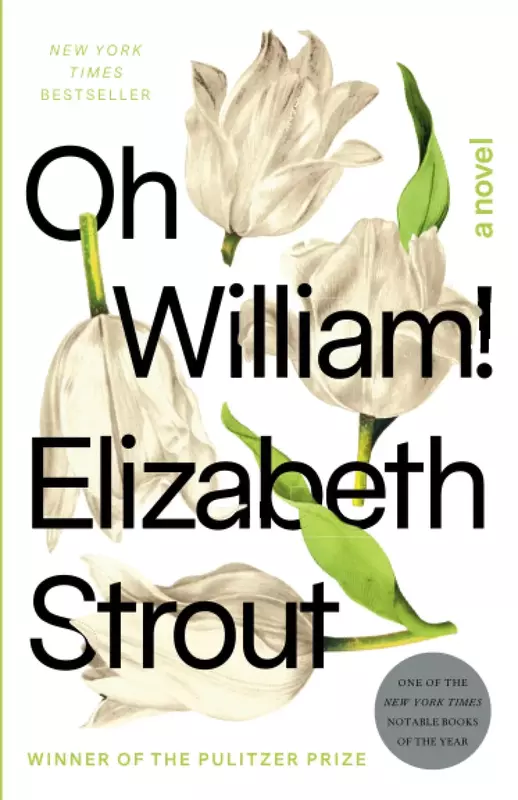This post may contain affiliate links. Read more here.
Book club questions for Lucy by the Sea by Elizabeth Strout explore the process of ambivalence, significance of our feelings towards each other, family affairs and lessons we can learn from our relationships.
From the Pulitzer Prize–winning author Elizabeth Strout who is also one of my favorite authors, Lucy by the Sea is one of the rare books that made me feel the astonishing force of depth and complexity that a writer’s pen and words can have. Her talent for expressing empathy and seeing the essence of people made me feel comforted, and uplifted by her story.
Below are the book club and discussion questions for Lucy by the Sea, and I hope it will be a joy for you to analyze them in detail with your book clubs!
The Synopsis
With her trademark spare, crystalline prose—a voice infused with “intimate, fragile, desperate humanness” (The Washington Post)—Elizabeth Strout turns her exquisitely tuned eye to the inner workings of the human heart, following the indomitable heroine of My Name Is Lucy Barton through the early days of the pandemic.
As a panicked world goes into lockdown, Lucy Barton is uprooted from her life in Manhattan and bundled away to a small town in Maine by her ex-husband and on-again, off-again friend, William. For the next several months, it’s just Lucy, William, and their complex past together in a little house nestled against the moody, swirling sea.
Rich with empathy and emotion, Lucy by the Sea vividly captures the fear and struggles that come with isolation, as well as the hope, peace, and possibilities that those long, quiet days can inspire. At the heart of this story are the deep human connections that unite us even when we’re apart—the pain of a beloved daughter’s suffering, the emptiness that comes from the death of a loved one, the promise of a new friendship, and the comfort of an old, enduring love.
Book Club Questions for Lucy by the Sea
1. At the start of the novel, Lucy doesn’t understand William’s concern about getting out of New York City. Could you understand Lucy’s ambivalence? How did you process the early days of the pandemic?
2. Reflective. Melancholy. Hopeful. Insightful. How would you describe the tone of LUCY BY THE SEA, and why?
3. Discuss Lucy’s relationship with her ex-husband, William. Why do you think they have remained in each other’s lives for so long? Were you satisfied with how they ended up at the end of the novel, or were you wary, like their daughters? Please explain.
4. There are many moving scenes in LUCY BY THE SEA. Which ones stayed with you, and why?
5. Lucy’s brother. William’s half-sister. How did these siblings shape Lucy and William? What role did siblings play in their lives?
6. What is the significance of Lucy’s feelings toward Bob Burgess? Were you surprised by the direction it took? Why, or why not? How do you think this connection will endure beyond the novel?
7. Why do you think Lucy invented a mother? What does this say about how we deal with trauma in the past?
8. William became quite curious about the discovery of the distant guard tower along the shore. What do you think this represented for William? What sort of touchstone did it provide?
9. Lucy takes many walks, alone and with others. Do you like to take walks? Why, or why not? What are the benefits of this activity, particularly for Lucy?
10. Discuss Lucy’s relationship with her daughter, Becka. How was hers different than Becka’s relationship with William? Why do you think Becka started to pull away from Lucy after leaving her poet-husband?
11. What did you think about Lucy’s friendship with Charlene Bibber, a fellow volunteer from the food pantry? Did it provide any lessons for Lucy? What do you make of Charlene’s story about stealing a nursing home resident’s shoe?
12. After a surprise visit with her daughters, Lucy observes: It is a gift in this life that we do not know what awaits us. Do you agree with this sentiment? Why or why not?
13. William had many affairs. Lucy had hers. Now their daughter, Chrissy, was thinking of having one. Why do you think people cheat on their spouses? Is it all about loss, as Lucy’s therapist once suggested, or are there other circumstances to consider?
Bonus Book Club Questions For Lucy by the Sea
14. Later in the novel, Lucy observes: My childhood had been a lockdown. What did she mean by this? How do you think growing up poor shaped Lucy’s life? How did she persevere?
15. When Lucy was pregnant with Chrissy, she remembers putting her hand over her stomach and thinking, Whoever you are, you do not belong to me. My job is to help you get into the world, but you do not belong to me. Do you understand what Lucy means? What does this statement mean to you?
16. If you were to have Lucy and William over for supper, what would you serve, and why?
17. Throughout the novel, Lucy reflects on many parts of her life: her mother, her siblings, growing up, her marriages. Later Lucy starts to forget things. What role does memory play in LUCY BY THE SEA?
Additional Recommendations
Hope you enjoyed my book club question for Lucy by the Sea by Elizabeth Strout! Here are some more of my book club recommendations.
Our Missing Hearts by Celeste Ng
Twelve-year-old Bird Gardner lives a quiet existence with his loving but broken father, a former linguist who now shelves books in a university library. His mother Margaret, a Chinese American poet, left the family when he was nine years old without a trace. Bird knows to not ask too many questions, stand out too much, or stray too far. For a decade, his family’s life has been governed by laws written to preserve “American culture” in the wake of years of economic instability and violence. To keep the peace and restore prosperity, the authorities are now allowed to relocate children of dissidents, especially those of Asian origin, and libraries have been forced to remove books seen as unpatriotic.
Bird has grown up disavowing his mother and her poems; he doesn’t know her work or what happened to her, and he knows he shouldn’t wonder. But when he receives a mysterious letter containing only a cryptic drawing, he is pulled into a quest to find her. His journey will take him back to the many folktales she poured into his head as a child, through the ranks of an underground network of librarians, into the lives of the children who have been taken, and finally to New York City, where a new act of defiance may be the beginning of much-needed change.
Our Missing Hearts is an old story made new, of the ways supposedly civilized communities can ignore the most searing injustice. It’s a story about the power—and limitations—of art to create change, the lessons and legacies we pass on to our children, and how any of us can survive a broken world with our hearts intact.
Oh William! by Elizabeth Strout
I would like to say a few things about my first husband, William.
Lucy Barton is a writer, but her ex-husband, William, remains a hard man to read. William, she confesses, has always been a mystery to me. Another mystery is why the two have remained connected after all these years. They just are.
So Lucy is both surprised and not surprised when William asks her to join him on a trip to investigate a recently uncovered family secret—one of those secrets that rearrange everything we think we know about the people closest to us. What happens next is nothing less than another example of what Hilary Mantel has called Elizabeth Strout’s “perfect attunement to the human condition.” There are fears and insecurities, simple joys and acts of tenderness, and revelations about affairs and other spouses, parents and their children. On every page of this exquisite novel we learn more about the quiet forces that hold us together—even after we’ve grown apart.
At the heart of this story is the indomitable voice of Lucy Barton, who offers a profound, lasting reflection on the very nature of existence. “This is the way of life,” Lucy says: “the many things we do not know until it is too late.”
Thank you for reading my book club questions and happy reading! ❤️

